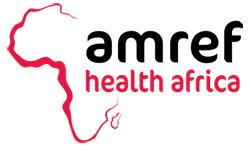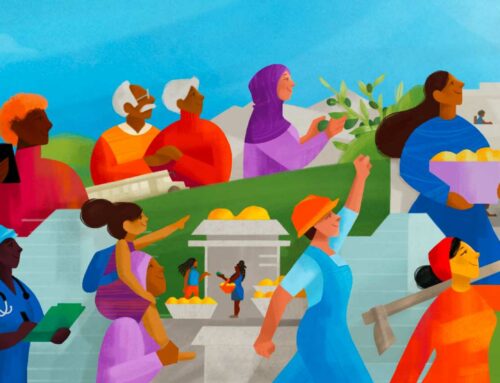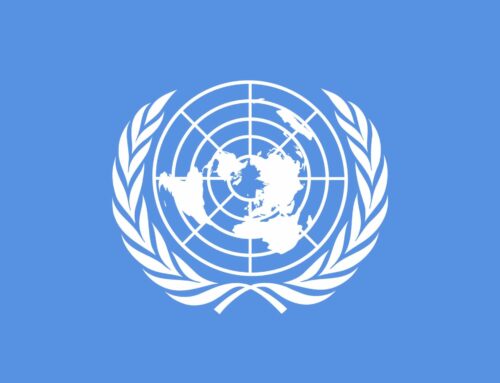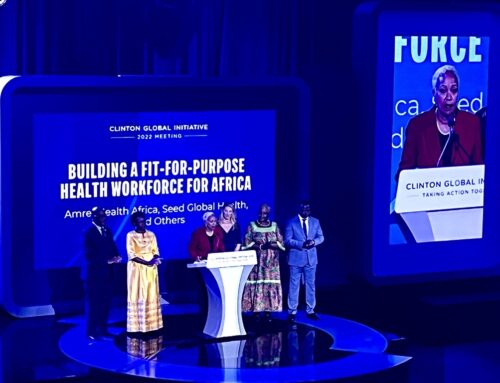Remembering Paul G. Allen who helped us stop the Ebola outbreak
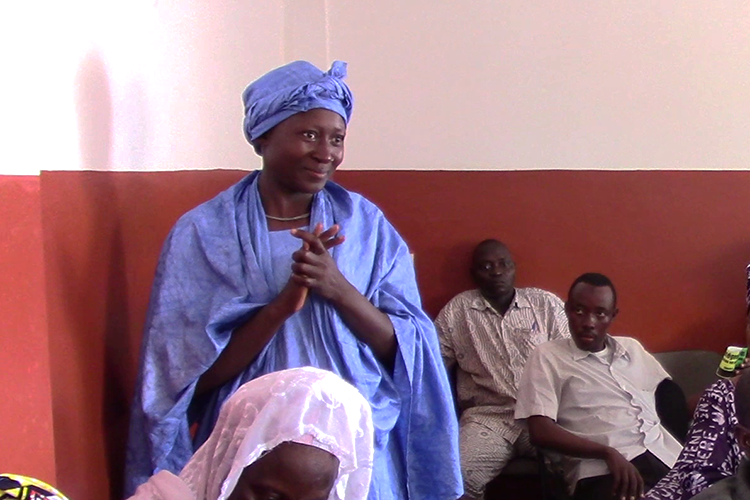
Ma Souma, an Ebola surviror, speaks at a community awareness-building meeting. (Photo: Amref Health Africa)
October 17, 2018 – Paul G. Allen, co-founder of Microsoft alongside Bill Gates, sadly passed this Monday at the age of 65. When Mr. Allen and Mr. Gates founded Microsoft in 1975, computers were gigantic processing machines only found in labs and offices. Together, they found Microsoft to bring the world personal computers. Mr. Allen was crucial in moving personal computers from an obscure hobby to the mainstream technology it is today used at both the office and in our own homes.
Revolutionizing technology wasn’t his only legacy. Mr. Allen created the Paul G. Allen Family Foundation in 1988 to strengthen communities by addressing the threat of climate change, promote biodiversity on land and sea, provide art education to youth, advance scientific and technological breakthroughs, and address the needs of vulnerable populations. Learn more about the Paul G. Allen Family Foundation here.
During the historical Ebola outbreak in West Africa in 2014, Mr. Allen pledged $100 million dollars to help tackle the rapidly spreading disease – the single largest private gift made towards Ebola. He created the Paul G. Allen Ebola Program, a key philanthropic initiative of Vulcan Inc., Mr. Allen’s broader organization.
Our approach to the Ebola outbreak was to focus on two highly-affected districts in Guinea, Coyah and Forécariah. We found that to effectively stop the spread of the disease, we needed to address community resistance to health messages about Ebola that resulted in rumors and misinformation about the disease, violence against foreign aid workers, and continuing traditional burial practices that helped spread the disease.
“You are the first NGO that has come to tell us about Ebola and ask us for advice.”
A local imam, Forécariah Center
Much of this resistance was a backlash against messages about prevention and management of Ebola being delivered by outsiders – without any involvement of community leaders. No trust was fostered.
To change this, we trained trusted and known community volunteers to help their neighbors understand and protect themselves against Ebola. We trained people from local religious, youth and women’s groups to go door-to-door with educational materials and sanitation kits, and to identify individuals with Ebola symptoms. We reached over 140,000 people through educational activities, advocacy meetings and round table discussions.
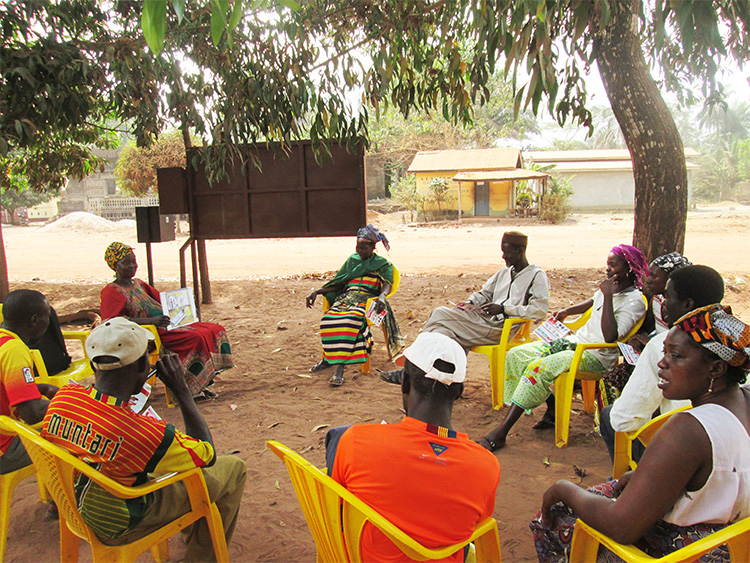
A community meeting where neighbors learn how they can prevent the spread of Ebola themselves and are encouraged to seek health services at a health facility. (Photo: Amref Health Africa)
These community volunteers identified and referred 124 suspected Ebola cases to and safe health services.
Thanks to the Paul G. Allen Ebola Program, we were able to build on and grow these earlier successes. We expanded our effective community engagement programs into two additional, neighboring districts which account for 25% of the Ebola cases and survivors, but only 12.5% of the population of Guinea.
Without Paul G. Allen and his philanthropic work, we could not have stopped the rapid spread of Ebola in Guinea.
